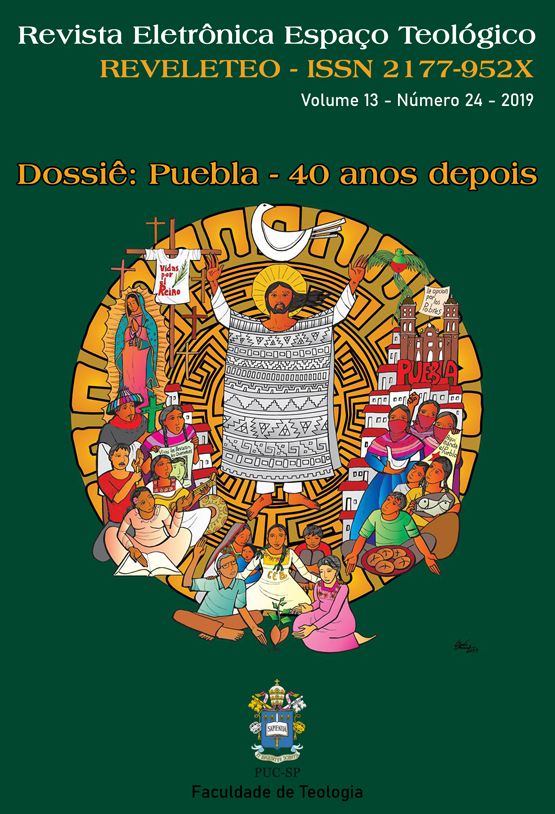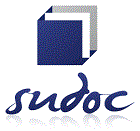PUEBLA: FROM THE OPTION FOR THE POOR TO A CHURCH ON THE WAY OUT
DOI:
https://doi.org/10.23925/2177-952X.2019v13i24p53-64Keywords:
Puebla, Option for the poor, Evangelization, Church on the way outAbstract
This article is about the main topics emphasized in the Concluding Document of the III Latin American Conference, held in Puebla de los Angeles, Mexico, from January 27 to March 13, February 1979. It discusses ecclesial experience, the options of Puebla, the directions of evangelization in the Latin American continent, whose main focus is the liberation and promotion of the dignity of the poor. It shows through the analysis of the Puebla document, the continuity of the use of the theological-pastoral method of seeing, judging and acting, in the reading of the socio-economic, political and cultural reality, the reading keys for the intepretation of the document: Evangelization in the present and in the future, communion and participation, the pastoral lines and orientations for the inclusion of the different faces of the poor. The article portrays the importance of vocation, Charmas and the work of the laity in the church and in the world. The memory of the 40 years of Puebla, in particular the cry of the poor, refers to Pope Francis ' apostolic exhortation evangelii gaudium, with emphasis on the church on the way out, focused on the Strengthening the liberating cause of the poor, solidarity with the human being, recognition of human dignity and human and civil rights. It emphasizes that the evangelization of culture, of the missionary Church under the dynamism of the spirit is the point of connection with the "Church in exit" proposed by Pope Francis. The church "in Exit" is the community of missionary disciples who "Primal", who engage, who accompany, who bear fruit and celebrate.Downloads
Published
2020-01-11
How to Cite
Peretti, C., & Nascimento, J. (2020). PUEBLA: FROM THE OPTION FOR THE POOR TO A CHURCH ON THE WAY OUT. Revista Eletrônica Espaço Teológico., 13(24), 53–64. https://doi.org/10.23925/2177-952X.2019v13i24p53-64
Issue
Section
DOSSIÊ





